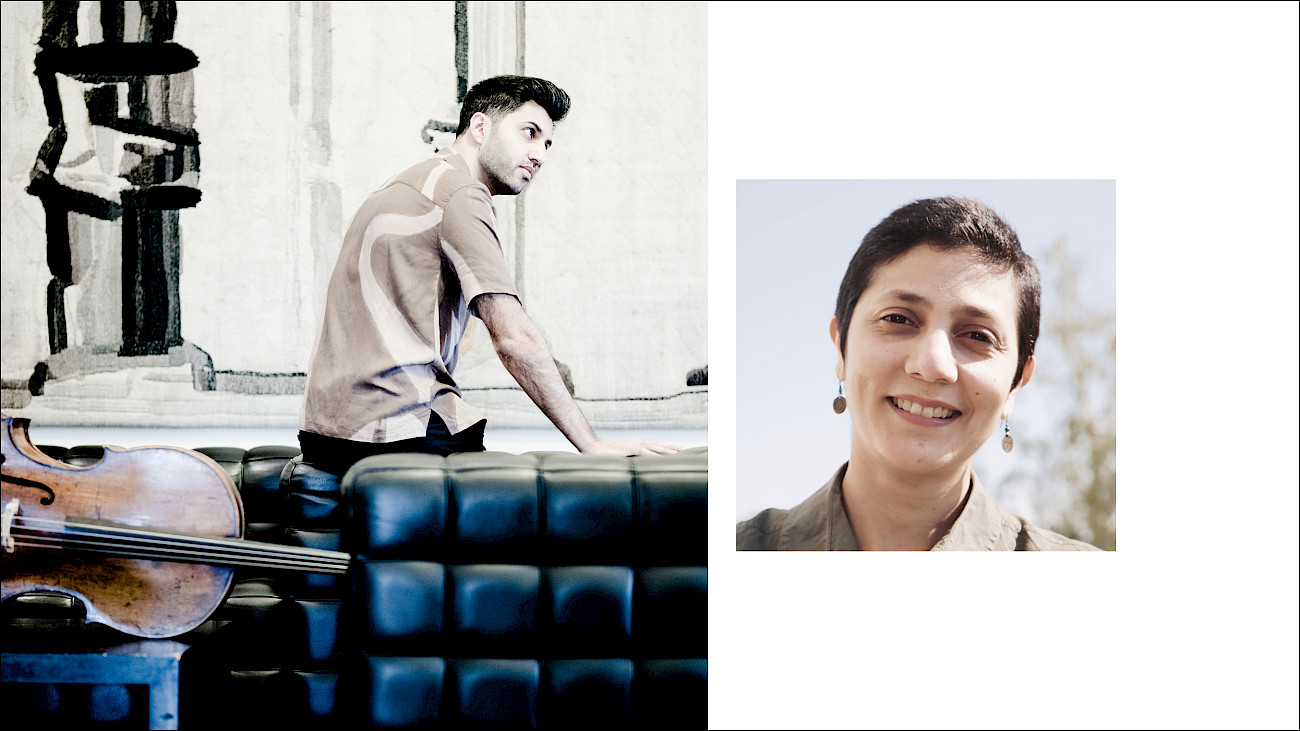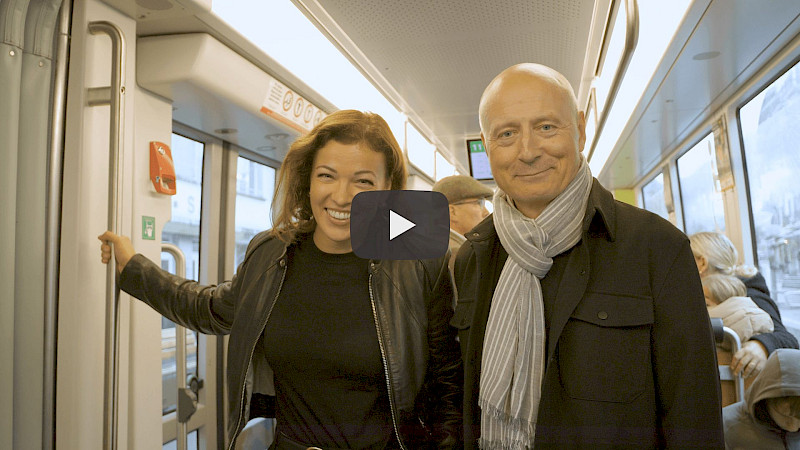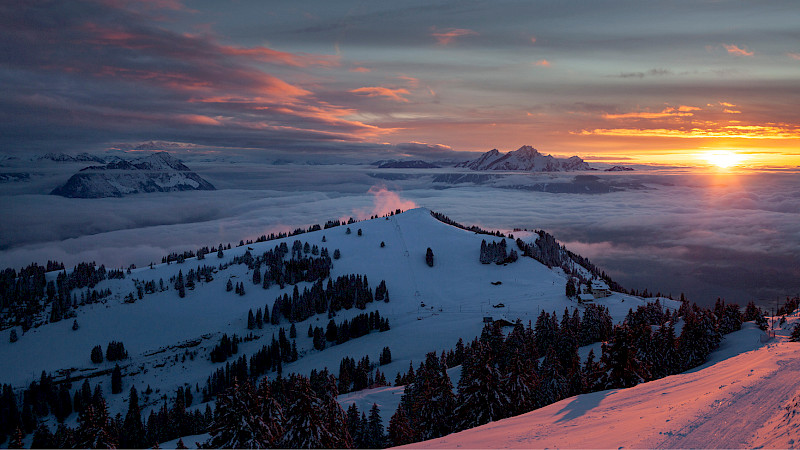
One Country, Two Worlds of Sound
Traditional music, Western classical music: the music scene in Iran has always been diverse. Two protagonists will soon be guests at the Tonhalle Zürich.
For example, Kian Soltani: The 31-year-old cellist is Austrian, grew up in Vorarlberg. But he is increasingly interested in the music of his parents' Iranian homeland: Now, when he contributes to our coming season as a focus artistn(Fokus-Künstler), he will also switch from the cello to the kemantsche.
Or Farzia Fallah: The 43-year-old composer grew up in Tehran; she has always sought her own path, she says, and she has found it. She now lives in Germany and is bringing a work to Zurich in December whose title allows various interpretations.
The two are two of many musicians who bring Iranian sounds and history(s) out into the world. They are very different sounds: the Persian music scene has always been remarkably vital and diverse. And it was and is closely connected to social developments - not only in the case of the protest songs that have been important throughout history and again in the present.
A medal for the «Persian March»
From the 19th century onwards, musical development in Persia, which has officially been called Iran since 1935, followed two parallel tracks. On one track, the centuries-old Persian tradition was passed on from generation to generation: with regionally influenced folk music and a closely related classical style, with a rich set of instruments and strong voices, with a tonal system based on 22 steps and complex series of melodic figures, so-called Radīfs, which structure the improvisations.
The other track connected Europe and Persia. It was developed by Nāser ad-Din Shah (1831-1896), who was enthusiastic about Western ideas and military bands, awarded Johann Strauss a medal in gratitude for his «Persian March» and founded music schools for Western instruments.
Even in the 20th century, contacts between the worlds remained close and mutual interest great. In 1936, Shah Reza Pahlavi banned the chador, and men were also to wear European hats. This led to quite practical problems, as the Swiss writer Annemarie Schwarzenbach, who was deeply fascinated by the Orient, described in her literary travelogue «Death in Persia»: With the traditional headgear, she wrote, the men «could have turned the umbrella to the back of the neck and thus touched the ground with their foreheads when performing prayers, as prescribed, without uncovering their heads. This was impossible with a European felt, a little straw hat, a bowler hat - that's why the mullahs believed their hour had come (...).»
That hour did not come until a good four decades later, with the Iranian Revolution of 1979. The Shah was deposed and Ayatollah Ruhollah Khomeini took power. This had far-reaching consequences for the music scene - of which Kian Soltani and Farzia Fallah have a lot to tell.
Ban on Western music
One of the first measures taken by the new rulers was to ban Western music. The Tehran Philharmonic Orchestra, founded in 1953, had to stop its concerts, the music schools were closed, many musicians emigrated. Khosro Soltani, for example, moved to Vienna and amazed the teachers at the conservatoire there with his skills: «My bassoon teacher was completely surprised that we had such a sophisticated playing technique in the Orient,» he once said in an interview.
Khosro Soltani became a bridge builder between musical worlds. He played bassoon and flute in the early music ensemble Les Menestrels, with the Vienna Philharmonic and in other classical orchestras; he also founded the Ensemble Shiraz, with which he performed Persian music on the traditional wind instruments ney, duduk and sornay.
And he supported his son Kian Soltani, who has meanwhile arrived on the international podiums as a cellist. In the coming months, he will perform the great concertos by Schumann and Shostakovich, among others, at the Tonhalle Zürich as a focus artist (Fokus-Künstler). For a performance with his father and the Ensemble Shiraz, he will also switch to the kemantsche, a Persian spiked violin. In his childhood, the whole family often played music at parties, says Kian Soltani. This also left traces in his classical interpretations: for example, in oriental-inspired ornaments that he occasionally uses in his cadenzas. (Learn more about Kian Soltani in the podcast Intro with him).
An engineer becomes a composer
Composer Farzia Fallah has experienced a very different story. She was born in Tehran in 1980 and grew up there during the Gulf War. Concerts were not an issue then, «it was a matter of survival», she says on the phone. Only literature, which plays a big role in Persian culture, was also present during the war, «so my generation is even more influenced by it than others». And she herself, as the daughter of a poet, even more so.
She grew up in an open environment, says Farzia Fallah. At home she listened to a lot of traditional Iranian music, but as a teenager she wanted to play the piano; that's how she came into contact with the Western repertoire. Because of her love of mathematics and physics, she went on to study engineering; in addition, she received a broad musical education privately.
And she enjoyed the cultural life that gradually reawakened after the war. Farzia Fallah remembers films that impressed her, «such as those by Tarkowski». Theatre performances and concerts took place again. Even the female singers, who were still officially not allowed to perform as soloists, unofficially found numerous opportunities to do so. «For the limited infrastructure that existed, the scene was really very active,» says the composer. «We were very proactive and passionate about it.»
Obtaining musical scores was complicated, but possible, until the upcoming of the internet. «You might not have been able to just go to the shop and buy Ligeti's ‹Préludes›. But a lot of things were there, and above all, we bartered: if one person had a particular score, everyone had it afterwards.» She often speaks of «we», especially in the field of contemporary music, a close-knit community was formed at that time around the composer Alireza Mashayekhi, who had lived for a long time in Europe and the USA, but then returned to Tehran: «He wanted to train 1,000 composers because he felt that the vitality of the music scene depended on it.»
«Know more, know more, learn more»
After graduating in engineering, she then had a decision to make, and Farzia Fallah chose music. Her answer to the question of why reveals a logic all her own: «There were many great engineers in Iran, but not so many women composers, so it seemed more important to me.» And because she wanted to «know more, learn more», she moved to Germany in 2007 to study with the composers Younghi Pagh-Paan, Jörg Birkenkötter and Johannes Schöllhorn.
She travelled to Germany at the time with the idea of returning to Tehran after her studies, she says, «but I was soon on the road in the independent scene and then got stuck». Today she lives in Cologne as a freelance composer and observes the developments in her home country from a committed distance.
Her works usually get by without lyrics, even without concrete references to her homeland: «I don't use traditional melodies or tonal systems.» Her sound language is that of the Western avant-garde; she relies on highly nuanced colours that emerge from silence. Her origins are at best reflected in the strikingly poetically formulated performance instructions: «Dream yourself into the first sound and play in its resonance», for example, is what the score of her work «im selben Augenblick» says.
In Zurich, her orchestral piece «Traces of a Burning Mass» will be performed, which first of all has to do with her old love of physics. The title refers to the sun, «for me it's a stark idea that what allows our life is actually a burning mass». But hearts can also burn, she then adds, «for what is really important». That's all she wants to say about it. Music must be free: also in the interpretation that is ascribed to it.
Translated with DeepL.com





